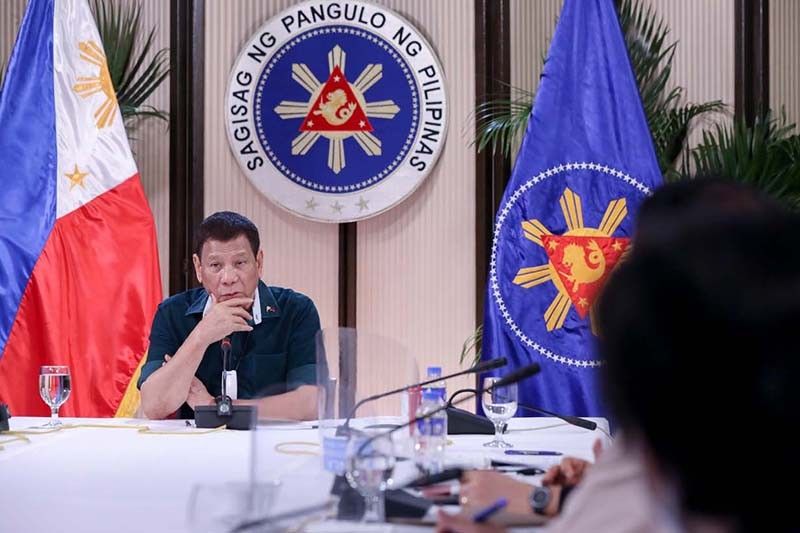Duterte's penultimate outlay to reach Congress way past SONA

MANILA, Philippines — Departing from recent tradition, the Duterte administration will delay the submission of the proposed budget for next year to August, giving lawmakers less time to deliberate on the outlay critical to ensure economic recovery from the pandemic is sustained.
“We are targeting (to have a discussion) on Friday with the Cabinet and submission to Congress before August 26,” Budget Undersecretary Laura Pascua said in a text message on Wednesday.
At that schedule, the proposed P4.33-trillion budget will not reach Congress until quite possibly a month after President Rodrigo Duterte delivers his fifth State of the Nation Address (SONA) on July 27.
In recent years since 2011, the administration in power has seen to it that proposed budgets are given to legislators for review on or at least days after the SONA in a bid to give Congress sufficient time to deliberate and pass the budget just before year-end.
The trend was only broken in 2019 when bickering among legislators over alleged budget insertions delayed the bill’s passage by three months and half.
Prior to 2011, typical delays in budget enactment were flagged as an impediment to economic progress since without a new outlay by the time the calendar year switches, new programs such as infrastructure or cash aid to the poor cannot be funded, delaying much-needed assistance to the public.
“We will try to facilitate the hearings on the budget but subject to how fast the House of Representatives can transmit it to us,” Senate President Vicente Sotto III said in a text message. Lower House representatives could not be immediately reached for comment.
Cha-cha, budget hearings may overlap
Under the Constitution, the House of Representatives takes first shot on examining the Executive department’s budget proposal, a tasking scrutiny that is likely to overlap with deliberations on the proposals to amend the 1987 Charter, an unpopular move recently revived in the chamber populated by Duterte’s allies.
In fact, Cagayan Rep. Rufus Rodriguez, chair of the House constitutional amendments committee, said he is ready to begin hearing on proposed charter amendments after Duterte’s SONA.
Yet as it is, the stakes cannot be higher for the Duterte administration’s penultimate outlay. Apart from ensuring programs such as infrastructures remain funded, a timely passage would boost chances of a quicker recovery from a pandemic-induced economic slump. The Philippine economy likely entered a recession as of June after a 0.2% contraction in the first quarter.
Pascua said current delays on budget submission were not intentional. “Well, there is the ECQ (enhanced community quarantine) and the skeletal force in the agencies and departments. We’ve had to extend the deadlines (on submission of budget proposals),” she said.
With fewer employees reporting to work during lockdowns, recalibrating budget programs was inadvertently hampered. Forecasting how much the government needs for next year has also become more difficult with the end to the pandemic still far from sight.
“There is the uncertainty in global and domestic environments causing us to change macro and fiscal scenarios many times now... We had to change the way we did the preparation of the budget because of the lower budget ceiling we were given because of the dive in revenues,” she added.
Budget proposal revisions
Economic managers originally set a record P4.64 trillion outlay for 2021 before the pandemic struck, but the amount was reduced to P4.1 trillion in May after it became clear that fewer revenues will be collected next year because of dismal economic activity with the virus’ impact still getting felt.
But a last revision was made last May 27 that saw the proposed budget cap increased to P4.33 trillion to accommodate higher infrastructure spending and facilitate growth.
- Latest
- Trending





























